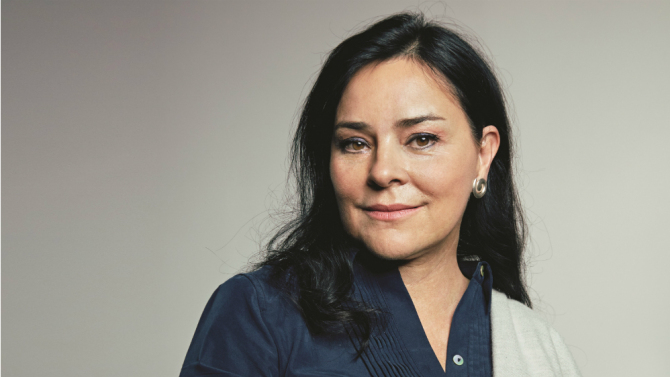I love seeing interviews with actors/production crew about a whole season of a show. It gives you a general look at their impression and experience for the entire season, not just an episode here or there. Variety did such an interview with Diana Gabaldon. Diana reflects on how the first season of Outlander turned out given her original, base material in her book. She also talks about Sam Heughan, Gary Lewis, “The Garrison Commader,” “Wentworth,” possible script writing, reading other book, watching other shows, inspiration, the end, and her method of writing. Below are some excerpts, but head over to Variety for the whole interview.
By the way, I love Diana’s photo for this article, taken by Terence Patrick for Variety.
What has been the most satisfying part of having “Outlander” on television?
It’s wonderful just to see how beautifully they’ve realized the story. Unlike many readers, I didn’t actually expect it to be a literal page-by-page translation. I understand what an adaptation is, and they’ve done just a fantastic job with the adaptation. It is “Outlander,” which anyone who’s read and loved the books would recognize and love it immediately, but at the same time there’s this wonderful sense of novelty and discovery about it, because there have to be changes in order to make it fit the television format — the way that they have taken the story apart and reassembled it with these nice little interpolations and fantastic additions. Rediscovering it as a whole new medium has been just wonderful.
Has watching the adaptation process reminded you of anything you might’ve forgotten, or helped you see the story in a new light?
While I wrote the book quite a long time ago, I do remember it — it is a continuing story, as far as I’m concerned. But the thing is that so many new people keep discovering it all the time and they talk to me, and that kind of keeps it very fresh in my mind. Also, the production people have been so kind about including me. I’m a consultant on the show, but as my agent said to me when we signed the contract, “That can mean anything or nothing, depending on how well they like you,” and luckily they seem to like me.
They do show me the outlines and the scripts and the daily footage, which is absolutely fascinating to watch, but that being so, this happens very slowly. You see one scene shot 25 times in one day, which is totally fascinating, but while you’re watching it you’re remembering, “this is what I was thinking when I was writing that part of the book,” and so it brings it all back very gradually as you’re working. So you see which parts are different and you think, “Oh, that’s cool.” Not in a way that, “Oh, I wish I had written that,” because it wouldn’t have fitted the way I wrote it, but just in this visual medium, this is a terrific thing to have done.
As you said, a book can’t be adapted literally word-for-word, so are there any changes that you particularly appreciated — not in an “I wish I’d written that” way, just that struck you as a good choice?
Oh yeah. I’d say a number of the things that they’ve done with Gary Lewis’ character, Colum. He’s a very strong and personable leader in the books, but he’s not anything like this firecracker Gary makes him, and I think that’s terrific what they’ve done there.
Source: Variety
